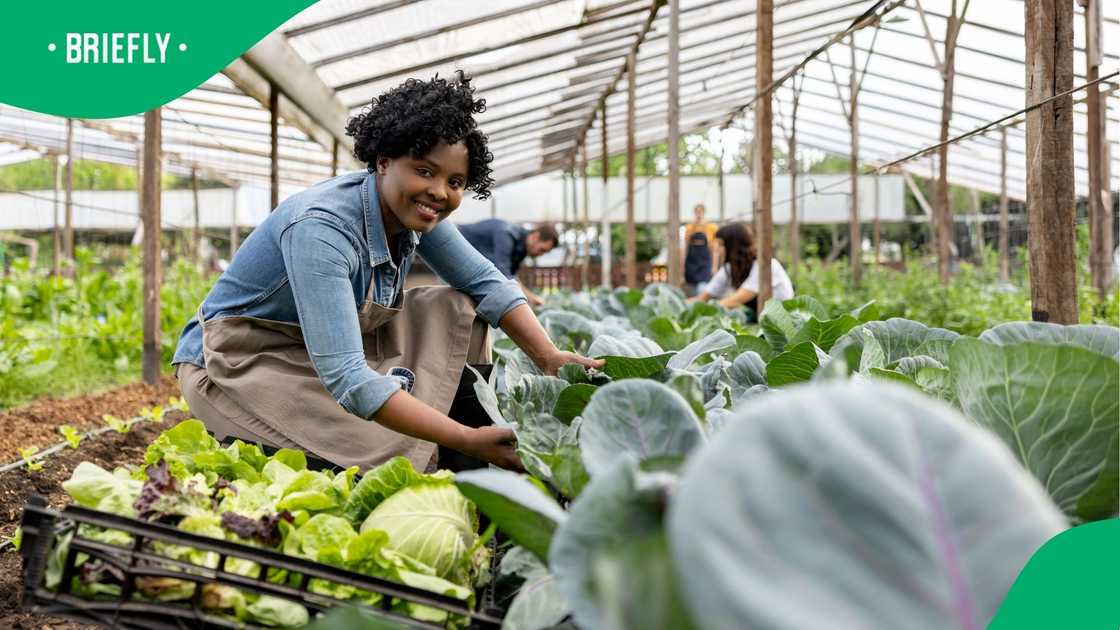Growing More Inclusive Tables by Transforming South Africa’s Fresh Produce Sector
Zanele Mabaso is currently the Head of Policy Development at Kagiso Trust. She holds three Master's degrees from the University of Cape Town, University of Stellenbosch and the University of Pretoria, respectively, and is currently enrolled towards an MCom in Inequality Studies at Witwatersrand University.
Don't miss out! Join Briefly News Sports channel on WhatsApp now!
South Africa’s National Fresh Produce Markets (NFPMs) generate over R20 billion in sales per year, a sector that contributes to job creation and food security; however, without adaptation to transformation and development strategies, the NFPMs risk not realising their true potential.

Source: Original
South Africa’s fresh produce sector is at a crossroads. Despite the sector being both a source of economic vitality and an industry that nourishes the nation, it is also a paradoxical mirror reflecting the nation's deep-seated inequalities. It is marked by a stark duality: while large-scale commercial farms thrive, many small-scale black farmers struggle to gain a foothold. Although it holds immense potential for economic growth, food security and job creation, systemic challenges and structural barriers threaten to undermine its viability and inclusivity.
Emerging farmers
The challenges confronting emerging farmers are deeply embedded in dynamic systemic impediments and structural issues that are multifaceted. Among the most urgent concerns are multilayered barriers to entry that these farmers face. Access to suitable land and affordable financing remains a critical obstacle.
PAY ATTENTION: Briefly News is now on YouTube! Check out our interviews on Briefly TV Life now!
Without sufficient capital, many aspiring farmers find it impossible to invest in essential inputs such as quality seeds, fertilisers, and modern equipment. This financial limitation not only restricts their productivity but also hinders their ability to compete effectively in the marketplace.
Market access is another significant hurdle that many small-scale and emerging-scale commercial farmers struggle to overcome. These farmers often find themselves sidelined from formal supply chains dominated by large retailers and wholesalers. The stringent quality and certification standards imposed by these large entities can be overwhelming, leaving many small farmers unable to meet the required benchmarks.
As a result, they become increasingly marginalised and excluded from lucrative market opportunities. The power dynamics within the agricultural sector tend to favour large buyers, effectively stripping small producers of their bargaining power and further entrenching their economic vulnerability.
The challenges
Infrastructure deficiencies further exacerbate the challenges faced by emerging farmers. Inadequate storage facilities and poorly developed transportation networks lead to substantial post-harvest losses, which not only diminish farmers’ income but also discourage future investment in their operations. The lack of reliable infrastructure creates a detrimental cycle characterised by low productivity and limited market participation, trapping these farmers in a state of perpetual struggle.
Moreover, anti-competitive practices within the agricultural sector distort the market landscape. Market concentration, where a handful of large entities control a significant share of the market, can result in price-fixing and other exclusionary behaviours. Such practices stifle innovation and limit consumer choice, collaterally undermining the viability and sustainability of small-scale farming operations.
Addressing these interconnected challenges requires a concerted effort from all stakeholders, including government, private sector actors, and civil society organisations. By advocating for policy changes that promote equitable access to resources, improving infrastructure, and fostering a more inclusive market environment, we can work towards empowering emerging farmers and ensuring their essential role in the agricultural sector is recognised and supported.

Source: Getty Images
Addressing the problems
Addressing these deep-rooted problems requires a collaborative public-private partnership environment that enables and promotes concerted effort from all stakeholders.
Here are some key interventions that could help to foster a more equitable and thriving fresh produce sector:
Policy Reform: Government policies must play a central role in levelling the playing field. This includes strengthening competition law enforcement to prevent anti-competitive practices and creating a regulatory environment that supports smallholder farmers.
Infrastructure Investment: Investing in rural infrastructure is critical. This means improving roads, storage facilities, and market infrastructure to reduce post-harvest losses and facilitate market access for farmers.
Inclusive Market Development: Creating more inclusive market systems is vital. This could involve promoting alternative market channels, such as farmers' markets and community-supported agriculture, and encouraging retailers to source produce from small-scale farmers.
Empowerment and Inclusion: Special attention must be paid to the inclusion of marginalised groups, particularly women. Addressing gender inequalities in access to land, finance, and markets is crucial for unlocking the full potential of the sector.
South Africa's fresh produce sector has the potential to be a powerful engine for inclusive growth and development. By addressing the systemic challenges and fostering a more equitable environment, we can create a sector that not only feeds the nation but also empowers its most vulnerable citizens.
3 More stories about the South African food sector
- Briefly News also reported that food waste is not a crisis of scarcity, but of distribution. The environmental fallout of this imbalance includes wasted water, energy, land, and logistics – a silent climate threat hidden in plain sight.
- The food insecurity is rising in South Africa - climate-smart farming is key to feeding a growing population.
- South Africa wastes more than 10 million tonnes of food every year while over 18 million South Africans face food insecurity daily.
Disclaimer: The views and opinions expressed here are those of the author and do not necessarily reflect the official policy or position of Briefly News.
PAY ATTENTION: Follow Briefly News on Twitter and never miss the hottest topics! Find us at @brieflyza!
Source: Briefly News





